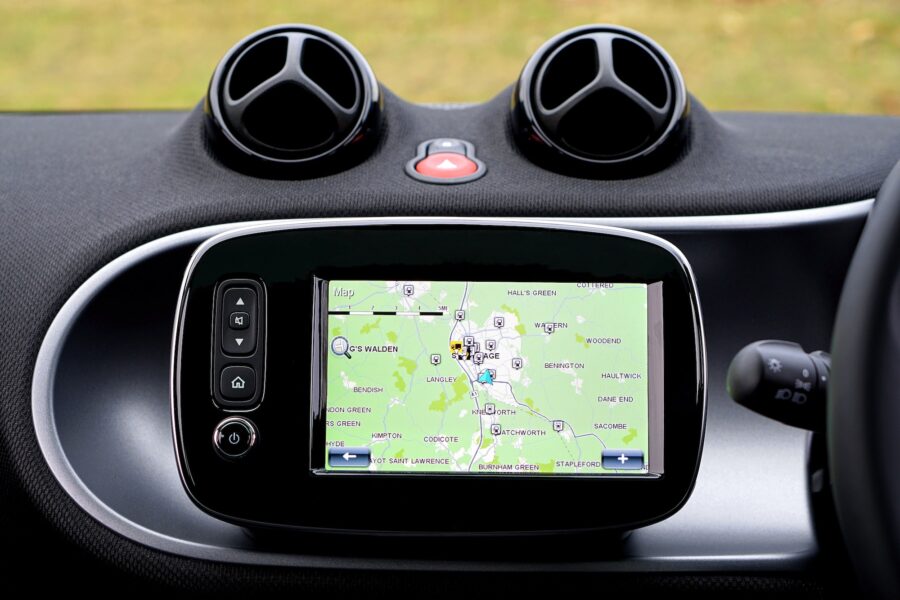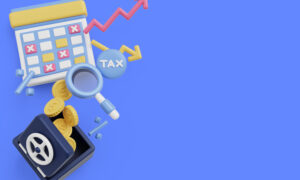
The last part of my morning routine goes like this:
- Get in the car.
- Open Pandora (the free version, of course). Select the Nelly & St. Lunatics channel.
- Open the Waze app. Select location labeled as Work.
- Back out of my driveway; I’m on the way!
You might think that it’s silly for me to use a navigation or GPS app to get to work every day. You may be wondering if I even know my way around where I live! A GPS app helps me overcome issues that arise while en route: traffic building up, accidents, flooding, or objects in the road. It alerts me to problems that are arising and suggests a different route if needed. It doesn’t change the location I travel to, but it helps me adapt my path so that I arrive more quickly.
Your budget or your spending plan is your financial GPS.
What’s Your Location?
In your budget, the location you’re traveling toward is your financial goal. Take the time to soul search and figure out what resonates for you. In my experience as an Accredited Financial Counselor, not having established goals is the biggest mistake I’ve seen when it comes to budgeting. Goals are motivational and exciting. They help keep you on track. Without goals, it’s very difficult to follow your plan because you don’t have anything set that you’re working toward. Without financial goals, it’s like taking a drive with nowhere to go.
You budget to reach the goals that are important to you. You budget so you have less stress, build memories on a family vacation, and spend time with your children when you buy an ice cream cone once a month. Every single one of those goals is important not only to you but to your family. This is what you’re traveling toward in your budget and is the location you arrive at.
What’s Your Route?
The route you travel is the budget or spending plan itself. When traffic is building up, a GPS helps to send you a slightly different path. In other words, your budget adapts to your circumstances. In order to be as effective as possible, these updates need to happen in real time. Your budget is something you need to revisit and revise regularly.
When you’re first building your budget, you want to get as specific as possible to flesh out the details. Make a list of all of the bills you have to pay on a monthly basis. You and I both know that you have many more expenses to cover, so doing this only gets you part of the way there. What else do you pay for?
It’s very difficult to fully understand where your money is going without looking in the past. Look over your bank, credit card, and payment apps (such as CashApp, Venmo, and PayPal) over a set period of time. Since we’re in the month of May right now, I’d suggest looking at April 1 through April 30. Add up your variable expenses within categories — these are the expenses that fluctuate from month to month. Groceries, dining out, gas, and entertainment are some examples of variable expense categories. Repeat for at least one other month, for example, March 1 through 31. Create an average by adding the category totals and dividing by the number of months used in the spending review.
Here’s an example of how you’d figure out your average monthly spending on groceries:
- April groceries = $753.20
- March groceries = $748.50
- February groceries = $588.10
- Grocery total for three months = $2,089.80
- Average grocery cost (divide total cost by three) = $696.60
Now you need to ask yourself some questions.
Which of these need to stay the same? What categories cause you discomfort when you look at the numbers? Do you want to change those categories? What changes can you reasonably make given your family’s needs and activities? Gas is a difficult variable expense to change in most cases because you need to get to work, drop your children off at daycare, and run other errands essential for your household. Other categories might make sense to change, though. Dining out and entertainment are often categories that can be trimmed back.
What expenses do you cover over the year? Back to school, holidays, birthdays, and property taxes are some of the big ones that come to my mind. It’s wise to prepare over time; think of what your game plan will be in your budget. Some of these may even be the financial goals you’re working toward. Remember, this is the location you’re traveling toward, so allocating some of your income for these goals is key.
Do You Need to Reroute Your Path?
When there’s an unexpected expense or change in income, sometimes our budget has to reroute us just as a GPS would guide us around a traffic build-up. It’s okay if you can’t save the $100 you planned this month because you can use your budget to save $25 extra over the next 4 months to make up for lost ground. The ability to change routes is the great part about using a budget!
You’re still traveling to work, but you might use a different highway. Only now, you’re not stuck in that traffic jam for an hour; you’re arriving on time. You might adapt a couple months of your budget, but you’re still able build a sandcastle at the lake with your daughter on your family vacation.


